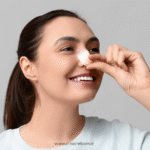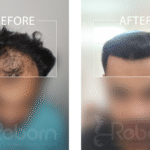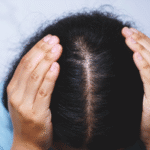
Do your hands feel itchy, red, or irritated? Or maybe you’ve noticed dry, flaky patches that just won’t go away. Eczema and psoriasis are two common skin problems, but they’re often confused. Understanding the difference between eczema and psoriasis helps you get the proper treatment and feel better, faster. In this blog, you’ll discover the main facts, real-life advice, and expert tips to help you spot the differences and manage your skin.
Eczema vs. Psoriasis: What Are They?
Simple as it sounds, eczema and psoriasis are both skin conditions but there’s a lot more to know.
- Eczema is a group of conditions that cause your skin to become inflamed, itchy, and dry. It’s very common, especially in children, but adults can get it, too.
- Psoriasis is a long-term autoimmune condition. Your body attacks healthy skin cells by mistake, creating thick, scaly patches.
The symptoms can look similar, but they’re not the same! For the best care, it’s essential to know the difference between eczema and psoriasis.
First Look: How Eczema and Psoriasis Appear Eczema and Psoriasis can both cause:
Eczema and Psoriasis can both cause:
- Dry, itchy skin
- Red, inflamed patches
- Pain or discomfort
But there are key differences:
Key Differences You Should Know
- How they feel: Eczema itches a lot – it can even interrupt your sleep. Psoriasis can itch too, but also burn or sting like insects are biting you.
- How they look: Eczema patches may be reddish, scaly, or ooze, while psoriasis usually shows up as thick, silvery scales on red skin.
- Where they appear: Eczema prefers skin folds (inside elbows, behind knees), and psoriasis shows on elbows, knees, lower back, and can even show as psoriasis on hands.
- Causes: Eczema is triggered by irritants, allergies, or weather; psoriasis is an immune system problem where skin cells grow too fast.
- Diagnosis: Doctors may use a physical exam, medical history, and sometimes a skin biopsy to tell them apart.
Both eczema and psoriasis can happen on the hands, but each has its pattern and type of discomfort.
Eczema Cream India: What Works?
Living with eczema? Over-the-counter creams can help, but not all are the same. Popular eczema cream India options include:
- Clobetasol Propionate creams for severe cases (use only as directed by a doctor)
- Moisturising creams with ceramides or natural oils (like coconut oil)
- Steroid-free creams such as those containing pimecrolimus or tacrolimus
- Natural choices: Aloe vera, honey, and coconut oil may help soothe your skin in mild cases
Always test a new cream on a small patch and talk to a doctor for the best advice. Check out more on our Eczema Care page or book an appointment.
Hand Eczema Treatment: Tips for Your Hands
Hand eczema treatment can be tricky – hands are constantly in use! Some effective remedies include:
- Use topical corticosteroids (as prescribed by your dermatologist)
- Keep hands moisturised using thick creams (preferably unscented)
- Try natural remedies: wet compresses, coconut oil, and honey
- Wear cotton gloves to bed after moisturising overnight
- Avoid triggers: harsh soaps, frequent washing, chemicals
- If severe, light therapy or oral medicines may be needed
Hand eczema is stubborn. Keep up your skin care every day for the best results!
Understanding Psoriasis on Hands Psoriasis is often seen on elbows and knees, but psoriasis on hands is less common and can cause challenging problems like:
Psoriasis is often seen on elbows and knees, but psoriasis on hands is less common and can cause challenging problems like:
- Thick plaques or raised patches
- Deep cracks (called fissures) that may bleed
- Nail changes: pitting, ridges, discolouration
See a psoriasis specialist if your hand rash is thick, scaly, doesn’t heal, or if you notice nail changes. Early support from a specialist can ease symptoms.
Read inspiring success stories and expert advice from our Psoriasis Treatment page or directly book an appointment.
Who to See: Finding a Psoriasis Specialist
If you think you have psoriasis, especially if it’s affecting your quality of life, find a psoriasis specialist. These are usually dermatologists with extra experience in managing long-term skin problems.
India has leading psoriasis specialists and hospitals, offering treatments from modern medicines to holistic approaches. Expert care can involve:
- Medicines (topical and oral)
- Phototherapy (UV light treatment)
- Biologic injections
- Lifestyle advice
- Psychological support
Discover your options and find a nearby Psoriasis Specialist.
What Treatments Should You Consider?
Treatments for eczema and psoriasis differ because they have different causes:
For Eczema:
- Moisturising creams
- Steroid creams (for flares)
- Avoiding triggers (harsh soaps, detergents)
- Antihistamines (for bad itching)
- Wet compresses for immediate relief
For Psoriasis:
- Steroid creams for plaques
- Vitamin D analogues
- Light therapy (UVB or PUVA)
- Biologic medicines (in severe cases)
- Treating triggers (infections, stress)
Choosing the proper treatment depends on your diagnosis. For expert help, visit Clinic
Reborn or Book an appointment.
Real-Life Example: “I Didn’t Know It Was Psoriasis!”
Raju, a college student in Delhi, kept treating his “eczema” with regular creams – but nothing worked. When he visited a psoriasis specialist, he discovered those thick, silvery patches on his hands were psoriasis, not eczema. After the right diagnosis, he finally found the right treatments and got his confidence back!
More to Read
Monsoon Skin Care Tips for Healthy, Glowing Skin This Season
Melasma Treatment: What Dermatologists Recommend in 2025 (add link after publishing)
Frequently Asked Questions:
Eczema usually causes intense itching, red and scaly patches, and affects skin folds. Psoriasis causes thick, silvery scales on red skin, a burning feeling, and often appears on joints and the scalp.
It’s rare, but yes, some people can experience both conditions, sometimes on different body parts.
No, neither eczema nor psoriasis is contagious. You cannot “catch” them by touching another person.
Diagnosis is made by a physical examination, medical history, and sometimes a small skin biopsy to look for differences under the microscope.
No, eczema and psoriasis are different diseases. Eczema cannot turn into psoriasis, but the two can look similar and sometimes coexist.
Conclusion: Why The Right Diagnosis Matters
Knowing the difference between eczema and psoriasis is the first step toward relief. If you’re unsure, seek expert guidance, a correct diagnosis sets you on the right treatment path.
Clinic Reborn offers specialised care for both eczema and psoriasis, with trusted doctors and up-to-date treatments. Ready to get answers? Book your appointment today!
Eczema vs Psoriasis, spot the difference, choose the best care, and get back to feeling confident in your own skin.

 Previous Post
Previous Post Next Post
Next Post



